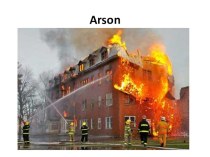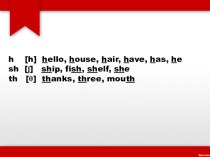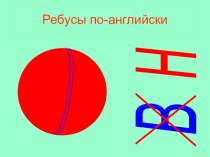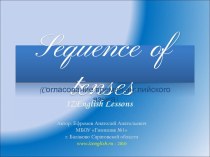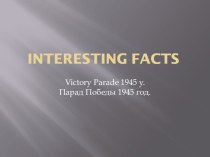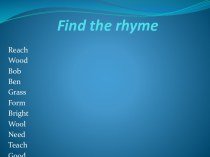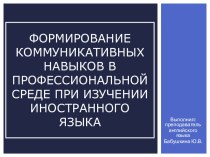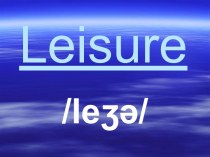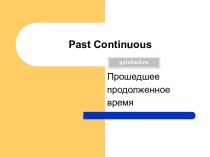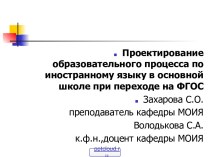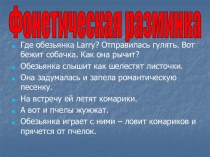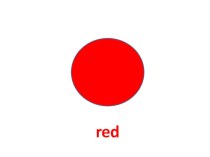- Главная
- Разное
- Бизнес и предпринимательство
- Образование
- Развлечения
- Государство
- Спорт
- Графика
- Культурология
- Еда и кулинария
- Лингвистика
- Религиоведение
- Черчение
- Физкультура
- ИЗО
- Психология
- Социология
- Английский язык
- Астрономия
- Алгебра
- Биология
- География
- Геометрия
- Детские презентации
- Информатика
- История
- Литература
- Маркетинг
- Математика
- Медицина
- Менеджмент
- Музыка
- МХК
- Немецкий язык
- ОБЖ
- Обществознание
- Окружающий мир
- Педагогика
- Русский язык
- Технология
- Физика
- Философия
- Химия
- Шаблоны, картинки для презентаций
- Экология
- Экономика
- Юриспруденция
Что такое findslide.org?
FindSlide.org - это сайт презентаций, докладов, шаблонов в формате PowerPoint.
Обратная связь
Email: Нажмите что бы посмотреть
Презентация на тему The to-infinitive or -ing form
Содержание
- 2. to - infinitiveThe to-infinitive is used1.To express
- 3. to – infinitive The to-infinitive is used2.
- 4. to- infinitiveThe to-infinitive is used3. after certain
- 5. to – infinitive The to-infinitive is used4.
- 6. to – infinitive The to-infinitive is used5. After certain nouns.What a surprise to see him there!
- 7. to - infinitiveThe to-infinitive is used6. After
- 8. to – infinitive The to-infinitive is used7.
- 9. to – infinitive The to-infinitive is used8.
- 10. to - infinitiveThe to-infinitive is used9. With
- 11. to – infinitive The to-infinitive is used10.
- 12. to – infinitive The to-infinitive is used11.
- 13. to – infinitive The to-infinitive is used12.
- 14. to – infinitive The to-infinitive is usedNote:
- 15. The –ing form is used1. After certain
- 16. - Ing - ing -
- 17. - Ing - ing - ing -ing
- 18. - Ing - ing - ing -
- 19. - Ing - ing - ing -
- 20. - Ing - ing - ing -
- 21. Ing - ing - ing - -
- 22. - Ing - ing - ing -
- 23. hear, listen , see, watch But:
- 24. Скачать презентацию
- 25. Похожие презентации
to - infinitiveThe to-infinitive is used1.To express purpose.He went to university to become a lawyer. (in order to become)
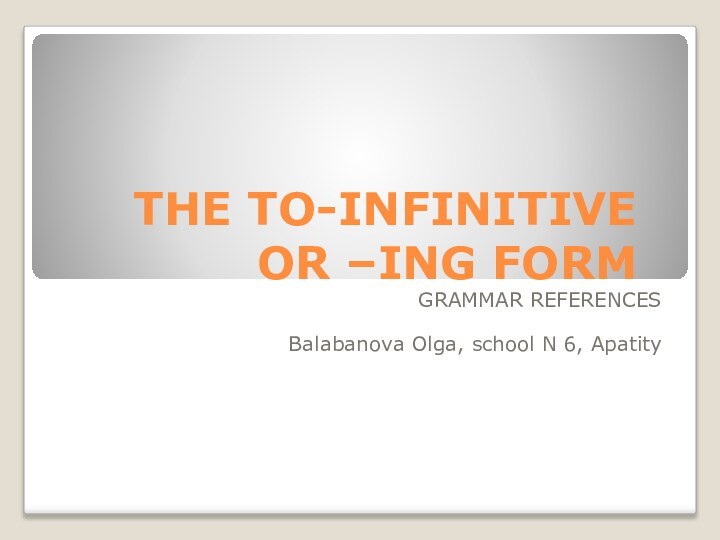

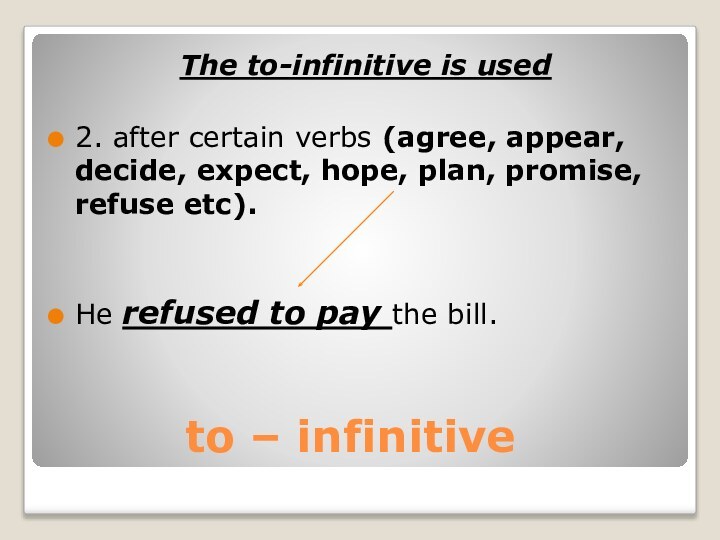
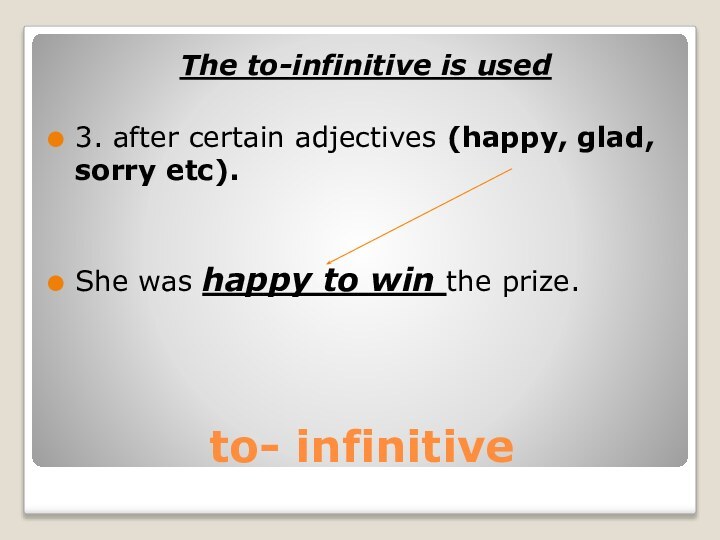
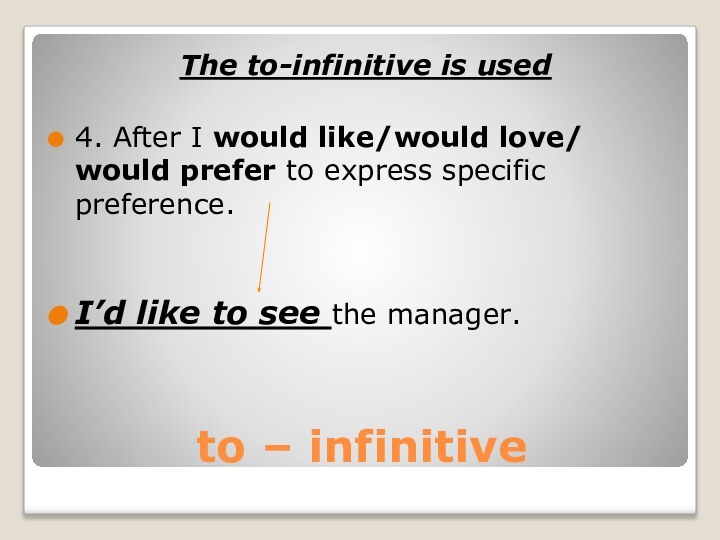
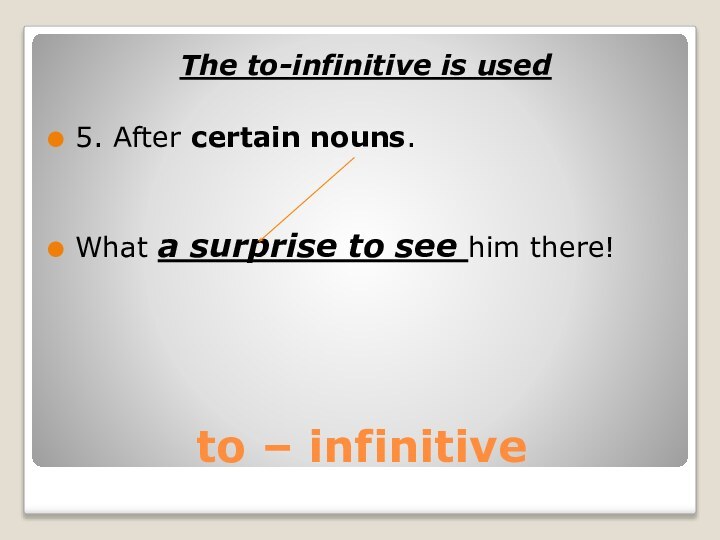
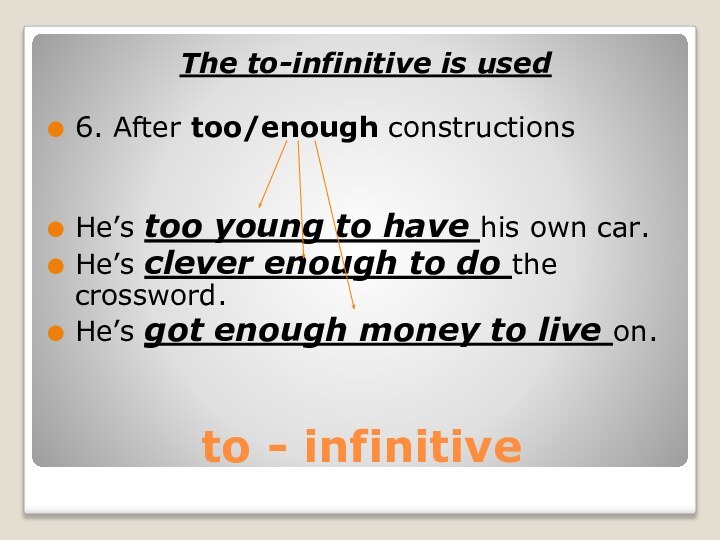
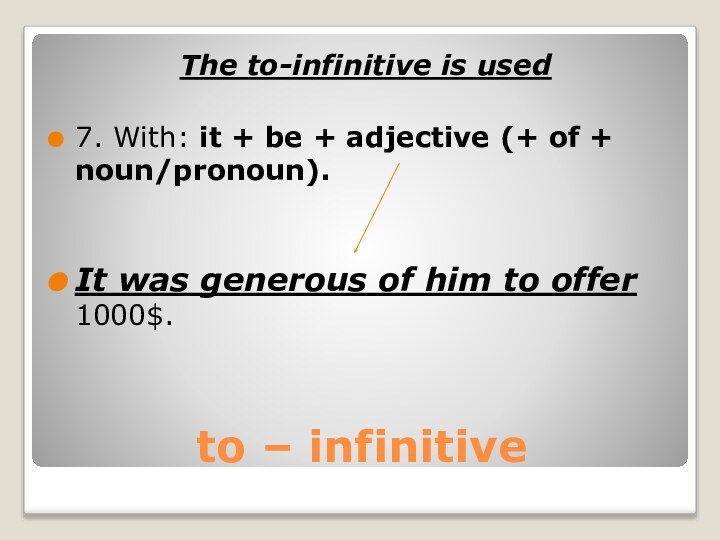
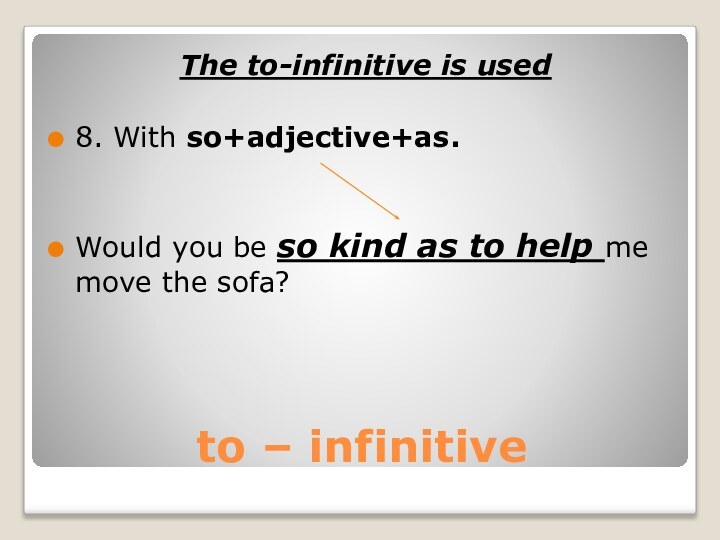
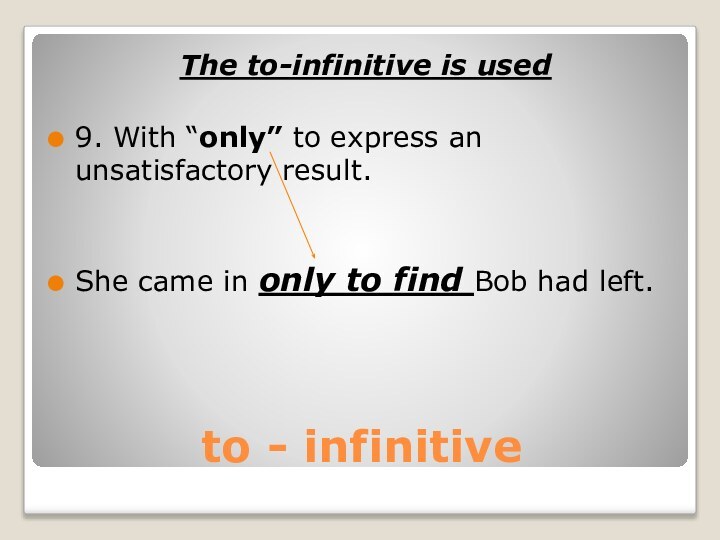
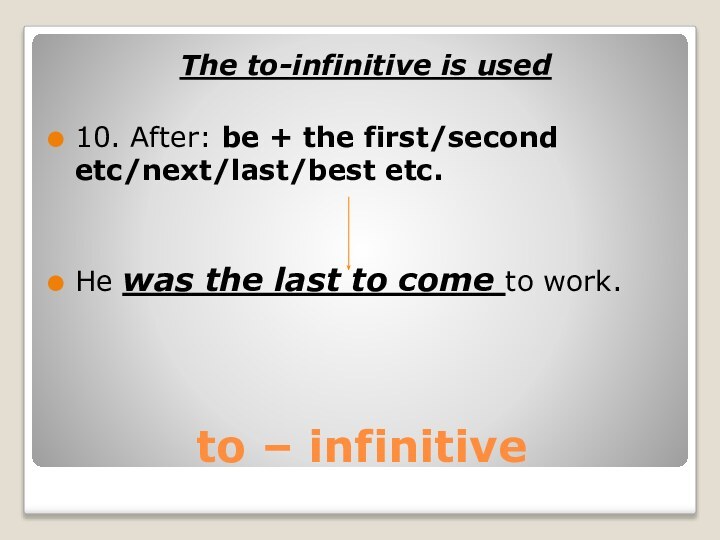
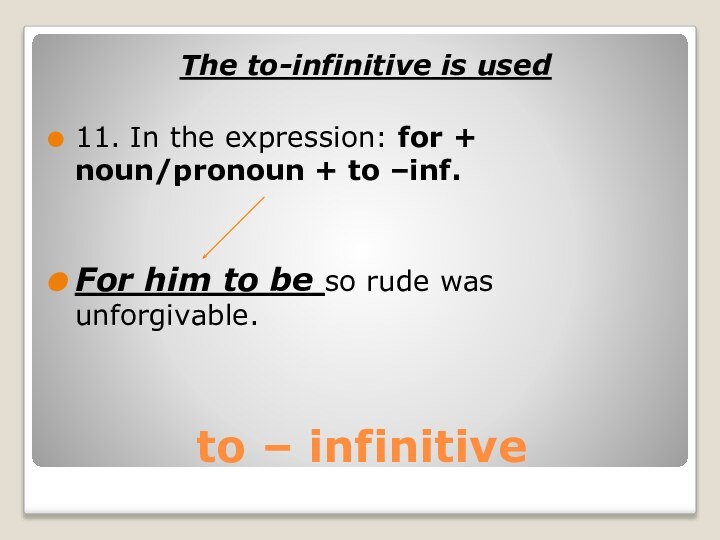
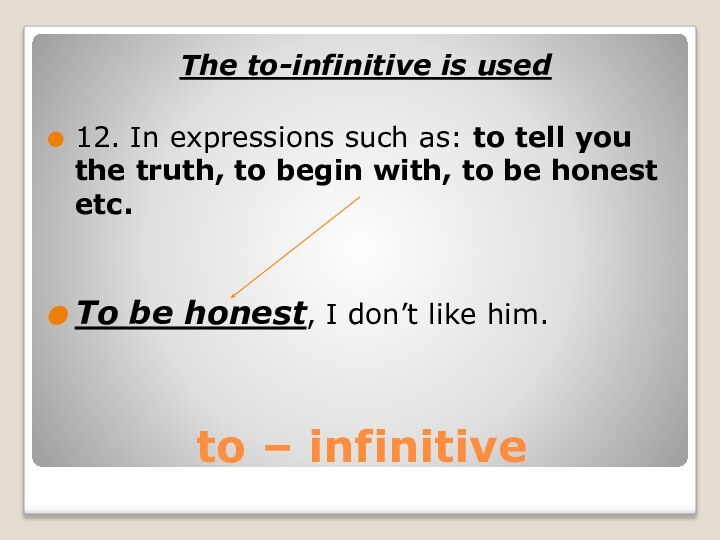
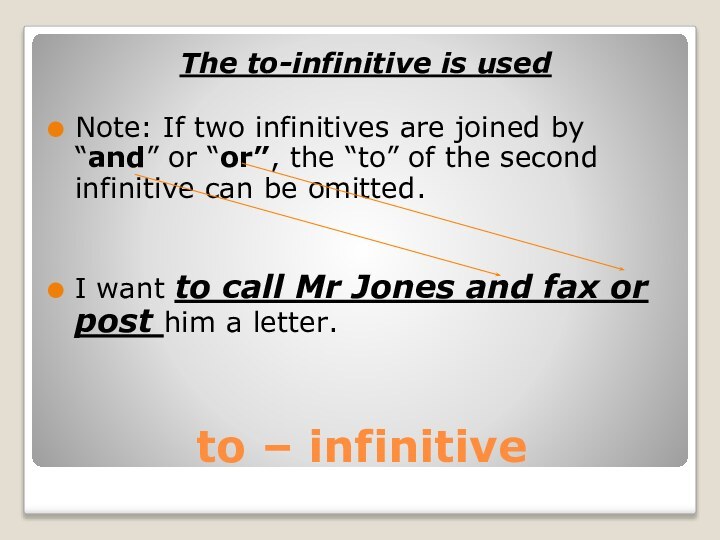
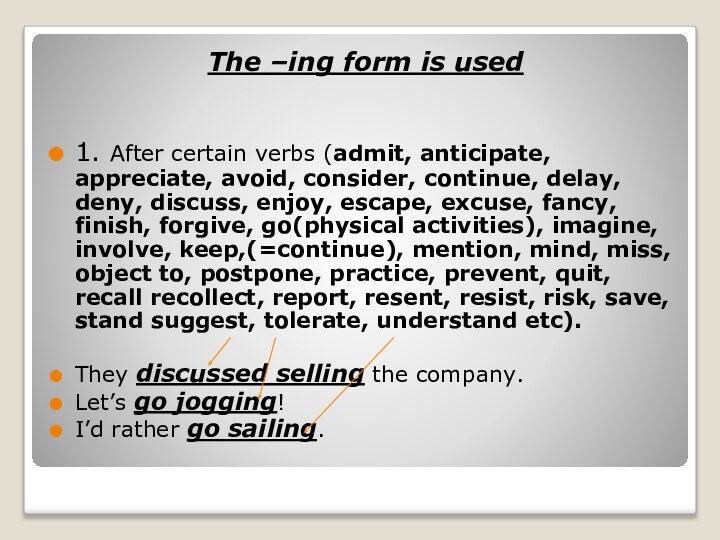
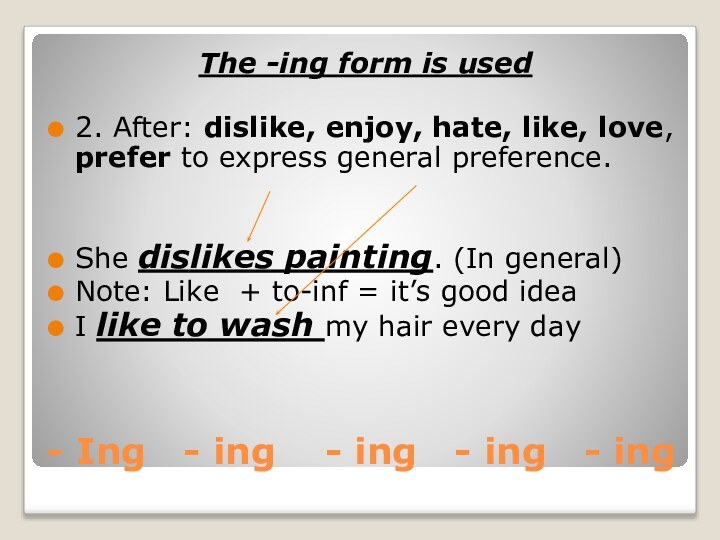
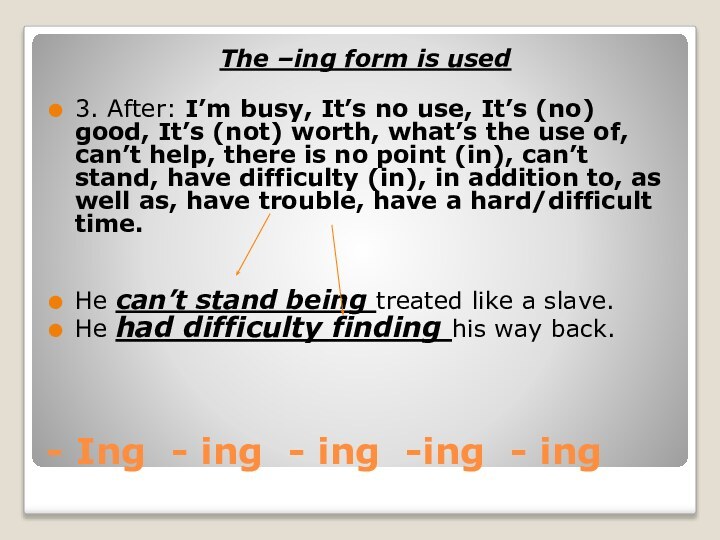
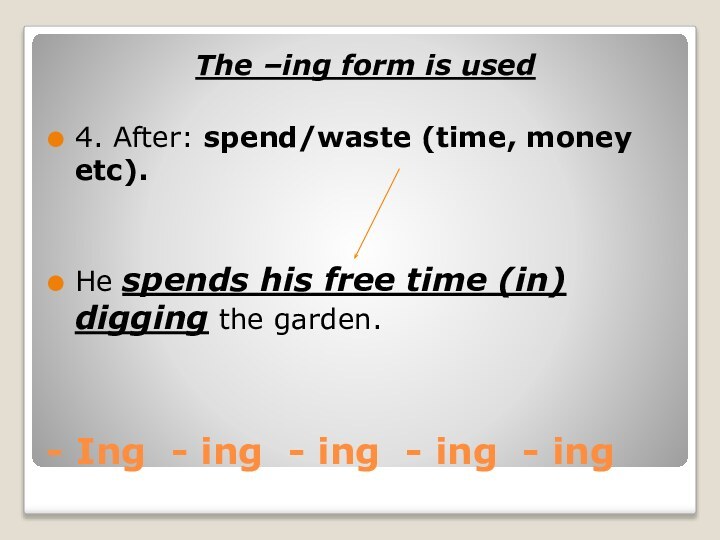
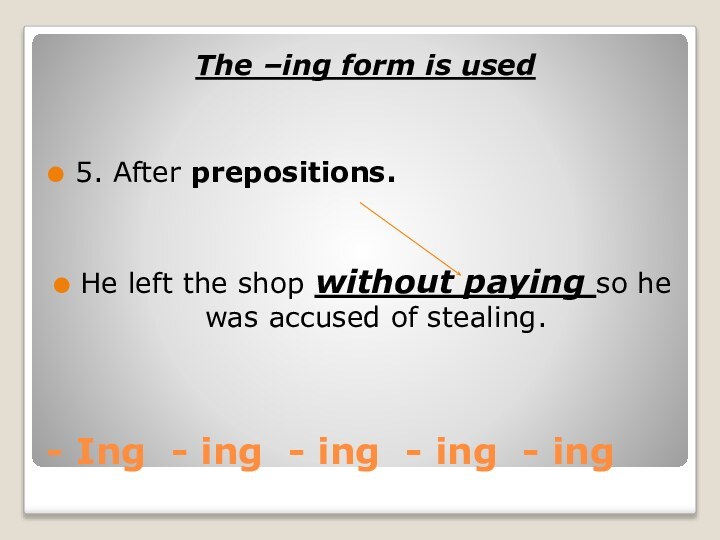
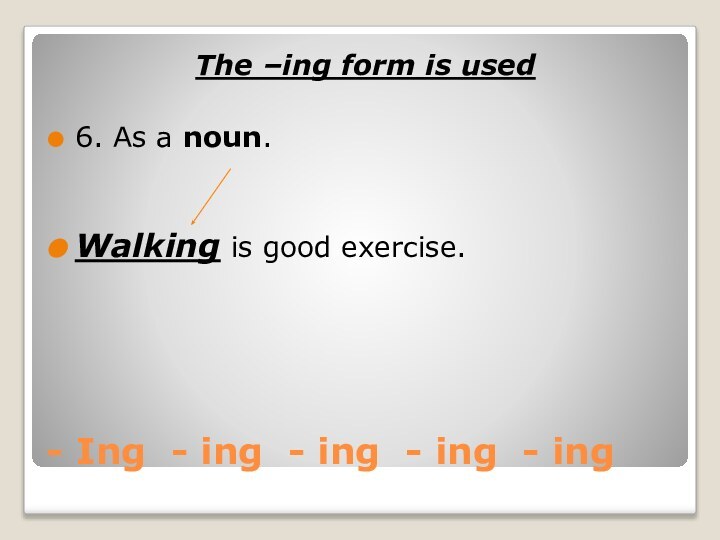
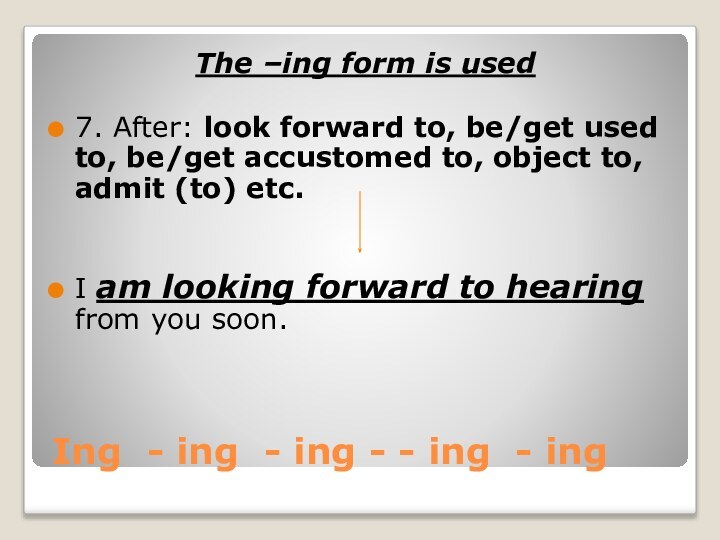
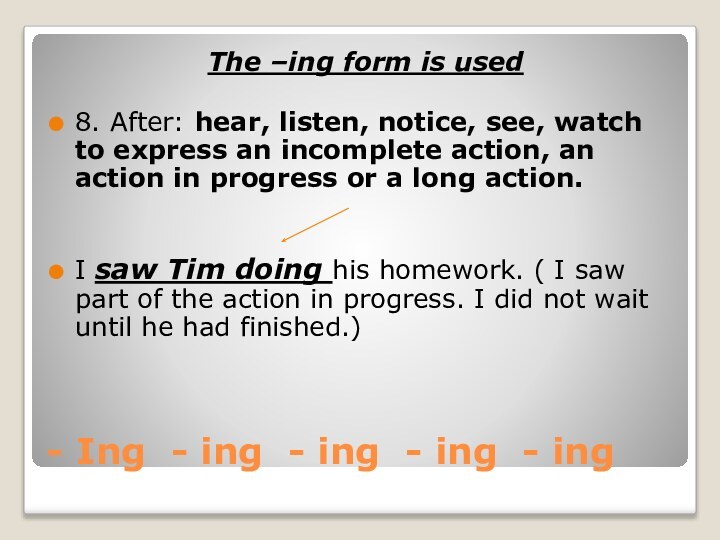

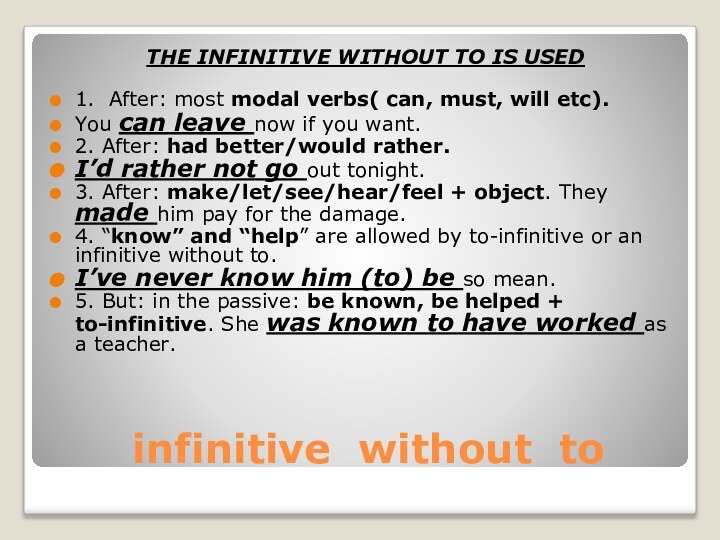
Слайд 3
to – infinitive
The to-infinitive is used
2. after
certain verbs (agree, appear, decide, expect, hope, plan, promise,
refuse etc).He refused to pay the bill.
Слайд 4
to- infinitive
The to-infinitive is used
3. after certain adjectives
(happy, glad, sorry etc).
She was happy to win the
prize.
Слайд 5
to – infinitive
The to-infinitive is used
4. After
I would like/would love/ would prefer to express specific
preference.I’d like to see the manager.
Слайд 6
to – infinitive
The to-infinitive is used
5. After
certain nouns.
What a surprise to see him there!
Слайд 7
to - infinitive
The to-infinitive is used
6. After too/enough
constructions
He’s too young to have his own car.
He’s clever
enough to do the crossword.He’s got enough money to live on.
Слайд 8
to – infinitive
The to-infinitive is used
7. With:
it + be + adjective (+ of + noun/pronoun).
It
was generous of him to offer 1000$.
Слайд 9
to – infinitive
The to-infinitive is used
8. With
so+adjective+as.
Would you be so kind as to help me
move the sofa?
Слайд 10
to - infinitive
The to-infinitive is used
9. With “only”
to express an unsatisfactory result.
She came in only to
find Bob had left.
Слайд 11
to – infinitive
The to-infinitive is used
10. After:
be + the first/second etc/next/last/best etc.
He was the last
to come to work.
Слайд 12
to – infinitive
The to-infinitive is used
11. In
the expression: for + noun/pronoun + to –inf.
For him
to be so rude was unforgivable.
Слайд 13
to – infinitive
The to-infinitive is used
12. In
expressions such as: to tell you the truth, to
begin with, to be honest etc.To be honest, I don’t like him.
Слайд 14
to – infinitive
The to-infinitive is used
Note: If
two infinitives are joined by “and” or “or”, the
“to” of the second infinitive can be omitted.I want to call Mr Jones and fax or post him a letter.
Слайд 15
The –ing form is used
1. After certain verbs
(admit, anticipate, appreciate, avoid, consider, continue, delay, deny, discuss,
enjoy, escape, excuse, fancy, finish, forgive, go(physical activities), imagine, involve, keep,(=continue), mention, mind, miss, object to, postpone, practice, prevent, quit, recall recollect, report, resent, resist, risk, save, stand suggest, tolerate, understand etc).They discussed selling the company.
Let’s go jogging!
I’d rather go sailing.
Слайд 16 - Ing - ing - ing
- ing - ing
The -ing form is
used2. After: dislike, enjoy, hate, like, love, prefer to express general preference.
She dislikes painting. (In general)
Note: Like + to-inf = it’s good idea
I like to wash my hair every day
Слайд 17 - Ing - ing - ing -ing -
ing
The –ing form is used
3. After: I’m busy,
It’s no use, It’s (no) good, It’s (not) worth, what’s the use of, can’t help, there is no point (in), can’t stand, have difficulty (in), in addition to, as well as, have trouble, have a hard/difficult time.He can’t stand being treated like a slave.
He had difficulty finding his way back.
Слайд 18 - Ing - ing - ing - ing
- ing
The –ing form is used
4. After: spend/waste
(time, money etc).He spends his free time (in) digging the garden.
Слайд 19 - Ing - ing - ing - ing
- ing
The –ing form is used
5. After prepositions.
He left the shop without paying so he was accused of stealing.
Слайд 21 Ing - ing - ing - - ing
- ing
The –ing form is used
7. After: look
forward to, be/get used to, be/get accustomed to, object to, admit (to) etc.I am looking forward to hearing from you soon.
Слайд 22 - Ing - ing - ing - ing
- ing
The –ing form is used
8. After: hear,
listen, notice, see, watch to express an incomplete action, an action in progress or a long action. I saw Tim doing his homework. ( I saw part of the action in progress. I did not wait until he had finished.)
Слайд 23
hear, listen , see, watch
But: hear,
listen, see, watch + infinitive without “to” express a
complete action, something that one saw or heard from begging to end.I saw Tim do his homework. It took him an hour. (I saw the whole action from beginning to end.)

